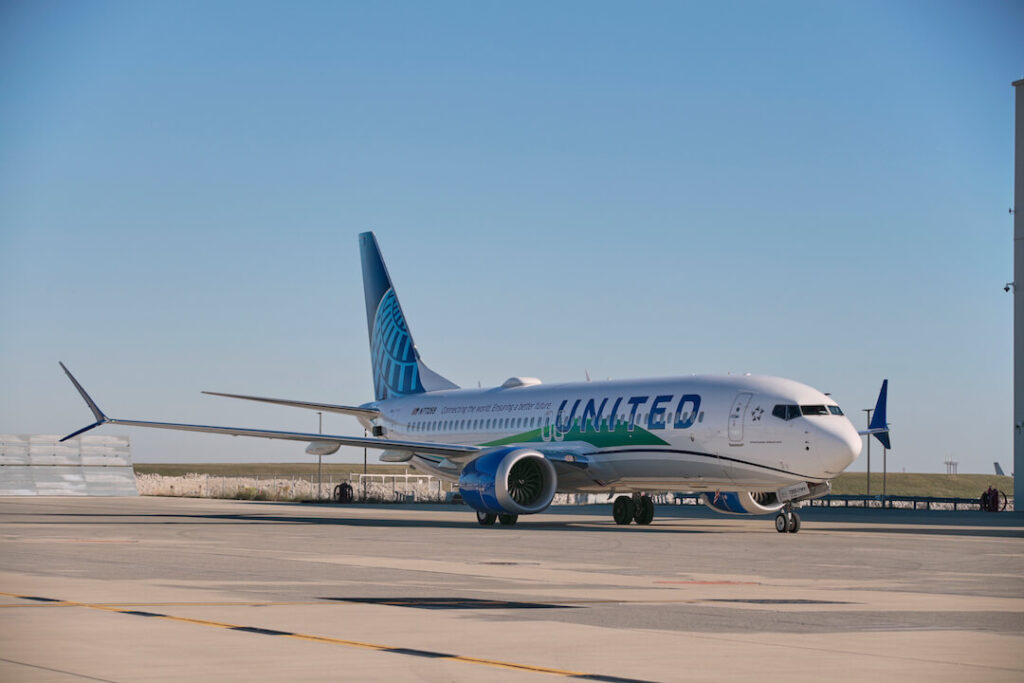In an effort to combat climate change, United Airlines operated a flight that’s a first in aviation history: the first passenger flight using 100% sustainable aviation fuel (SAF) in one of the aircraft’s engine.
The United Airlines flight UA 2701 took off on December 1, 2021 from Chicago’s O’Hare International Airport (ORD) and landed at Washington, D.C.’s Reagan National Airport (DCA). The flight was operated by United Airlines’ new 737 MAX 8.
Aviation history is cleared for takeoff.
— United Airlines (@united) December 1, 2021
The world’s first passenger flight using 100% sustainable aviation fuel (SAF) is en route to @Reagan_Airport. pic.twitter.com/63Don45bBg
In order to demonstrate that there are no operational differences between conventional jet fuel and SAF, the airline used 500 gallons of SAF in one engine and the same amount of conventional jet fuel in the other engine.
This also set the stage for more scalable uses of SAF by other airlines in the future. Currently, airlines are only permitted to use a maximum of 50% SAF on board. Other airlines that have flown sustainably have done so with a mix of SAF and regular fuel on both engines.
photo from united.com
“United continues to lead from the front when it comes to climate change action,” said United CEO Scott Kirby in a press statement. Kirby himself was also onboard the United SAF flight.
“Today’s SAF flight is not only a significant milestone for efforts to decarbonize our industry, but when combined with the surge in commitments to produce and purchase alternative fuels, we’re demonstrating the scalable and impactful way companies can join together and play a role in addressing the biggest challenge of our lifetimes.”
UA2701, operated by a new 737 MAX 8, flying 612 miles on 100% SAF in the right engine, which emitted an estimated 75% less CO2 than a flight using traditional jet fuel, bringing us one step closer to making 100% green – carbon-neutral-aviation – the norm. pic.twitter.com/NgyaiWB3GU
— United Airlines (@united) December 2, 2021
Also onboard were executives from United Airlines’ partners who helped execute the SAF flight, government officials, and media.
Some of the partners include Boeing, CFM International, Virent and World Energy.
“Boeing is proud to support United on this historic event as we work together to make aviation more sustainable,” said Ihssane Mounir, Senior VP of Sales and Marketing for Boeing.
“As an industry, we are committed to addressing climate change, and sustainable aviation fuels are the most measurable solution to reduce aviation carbon emissions in the coming decades. No one entity can decarbonize aviation alone and it will require partnerships like this to ensure aviation is safe and sustainable for future generations.
